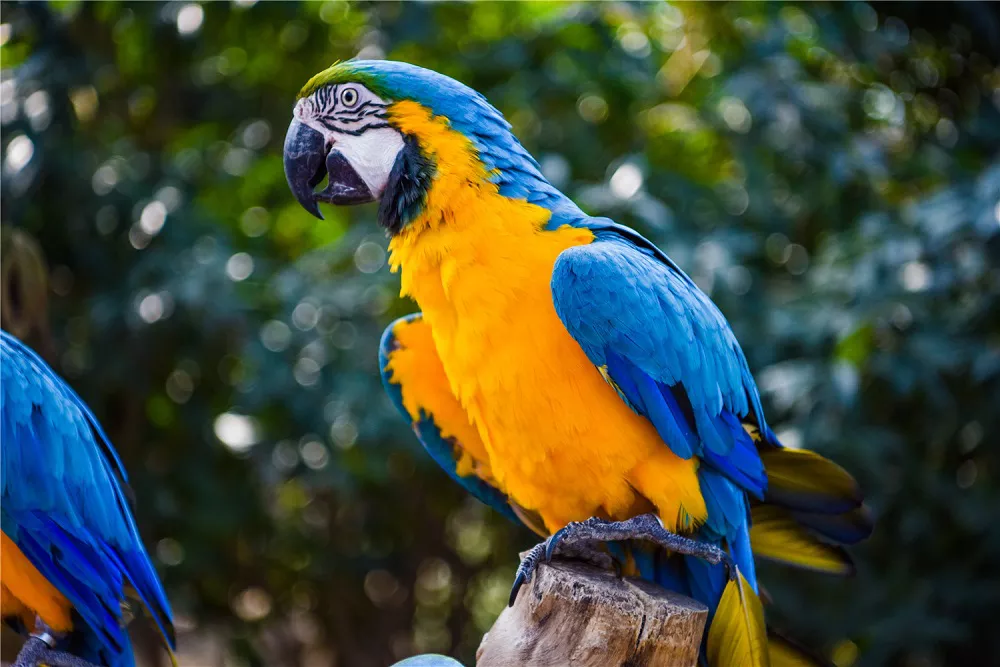Parrots are intelligent and social birds that make great pets. They are known for their ability to mimic human speech and for their engaging personalities. However, many people wonder whether parrots love their owners. In this article, we will explore the question of whether parrots love their owners and what factors contribute to a parrot’s ability to form a bond with their human caretaker.
Do parrots love their owners?
The short answer is that it depends. Parrots are capable of forming strong bonds with their human caretakers, but not all parrots will do so. Some parrots are more independent and less interested in social interaction, while others are more outgoing and affectionate. In general, parrots that have been hand-raised and socialized with humans from a young age are more likely to form a bond with their owner than parrots that have had little interaction with humans.
Bonding with Humans:
Parrots have the ability to form strong bonds with their human caretakers. Through regular interaction, positive reinforcement, and socialization, parrots can develop a deep attachment to their owners. This bond is often built on trust, companionship, and shared experiences.
Affectionate Behaviors:
Parrots display various affectionate behaviors towards their owners, indicating a strong emotional connection. These behaviors may include:
Cuddling: Parrots may seek physical closeness with their owners, snuggling against them or perching on their shoulders or laps.
Vocalizations: Parrots often communicate their affection through vocalizations, such as gentle chirping or soft purring sounds, directed specifically towards their owners.
Grooming: Mutual grooming is another way parrots show their affection. They may preen their owners’ hair or gently nibble at their fingers as a sign of trust and bonding.
Excitement and Recognition: Parrots may exhibit excitement and recognition upon seeing their owners after a separation, displaying happiness through vocalizations, wing flapping, or even dancing.
Factors that influence a parrot’s ability to form a bond with their owner
There are several factors that can influence a parrot’s ability to form a bond with their human caretaker. These include:
1. Socialization: Parrots that have been socialized with humans from a young age are more likely to form a bond with their owner. Hand-raised parrots are typically more socialized than those that have been bred in aviaries.
2. Personality: Just like humans, parrots have individual personalities. Some parrots are more outgoing and sociable, while others are more independent and reserved. The personality of the parrot can influence their ability to form a bond with their owner.
3. Species: Different parrot species have different temperaments and personality traits. Some species, such as the African Grey parrot, are known for their intelligence and ability to form strong bonds with their owners, while other species, such as the Macaw, can be more independent and less interested in social interaction.
4. Environment: The environment in which a parrot is kept can also influence their ability to form a bond with their owner. Parrots that are kept in a quiet and comfortable environment with plenty of social interaction are more likely to form a bond with their owner than those that are kept in a noisy or stressful environment.
5. Care: The quality of care that a parrot receives can also influence their ability to form a bond with their owner. Parrots that receive regular attention, proper nutrition, and medical care are more likely to form a bond with their owner than those that are neglected or mistreated.
In conclusion, while parrots are capable of forming strong bonds with their human caretakers, whether or not a parrot loves their owner depends on a variety of factors. Socialization, personality, species, environment, and care all play a role in a parrot’s ability to form a bond with their owner. If you are considering getting a parrot as a pet, it is important to research the species and their specific needs and personality traits to ensure that you are able to provide them with the care and environment they need to thrive and potentially form a strong bond with you.


 Facebook
Facebook  Instagram
Instagram  Youtube
Youtube 